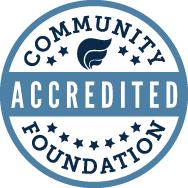Charity and the New Tax Law (Yes, You Can Still Give and Be Smart!)
By Lorelei Costa
Note: This article first appeared in the February 14, 2018 edition of the Outer Banks Sentinel.
If you’re anything like me, you’ve just started the tedious task of collecting your paperwork for tax season. Not my favorite chore, but a necessary one. Maybe, like me, among your papers are a few letters from various charities telling you that your donations last year were tax-deductible. And maybe you are wondering, will the new tax bill change that in the future? Will there be any tax benefit to giving in 2018?
At the Outer Banks Community Foundation, we are getting these exact questions from donors. Nonprofits are calling us, too, wondering whether they should expect a huge drop in donations starting this year. There has been so much confusion about philanthropy and the new tax bill, that I thought I’d try to address some of the biggest issues here. Keep in mind, too, that most of the changes go into effect in 2018, so the return you’re completing now for 2017 will be very similar to previous years.
First and foremost: Yes, for 2018 you will still be able to deduct your charitable donations! This vital part of our tax system will continue to benefit many folks who choose to give to charity.
That said, next year some tax-payers will find greater advantage in choosing the standard deduction, rather than itemizing charitable gifts and other deductions. That’s because the new tax law has essentially doubled the standard deduction for most Americans.
Will charities see a dramatic decline in donations? Hard to tell, but I will say this: about two-thirds of all Americans contribute to charity, and at least half of them do so without itemizing their donations. I believe people give when a charity touches their heart, when they see a nonprofit doing good things for the world. Here on the Outer Banks, we are a generous community, and I think people here often give for no benefit, without recognition, just because they want to help people.
Now, no one wants to pay more taxes than they have to, so even if you don’t think you’ll itemize on your 2018 return, there are still some nifty strategies that may help your tax bill. Talk to your accountant now to see if you should use any of these strategies this year.
IRA Rollover Contributions: This is a good one. If you are age 70½ or older and you have an IRA, consider donating to your favorite charities directly from your IRA. This is a fantastic strategy whether you are itemizing or not; that’s because if you donate directly from your IRA to charity, the money is never even added to your income to begin with, yielding a much better bottom line on your tax return. Donating from your IRA might even reduce your income enough to put you in a different tax bracket—meaning a lower overall tax rate! Best of all, donations from your IRA count toward your required minimum distribution, which is great news if you don’t need your IRA for income right now, but are forced to take a distribution because of your age. Remember, for this strategy to work, your IRA has to write the check directly to your charity.
Gifts of Stock or Real Estate: If you are blessed to have a portfolio that includes a variety of resources, consider gifts of appreciated assets, like securities or property. Donating your appreciated assets may help you avoid the capital gains tax (which, incidentally, did not decrease one iota with the new tax law), which is true even if you don’t itemize. Ask your accountant if you’d benefit from shifting some of your donations from cash to stocks or real estate.
Gift Bundling: Perhaps you contribute annually to charity, and perhaps your budget is somewhat flexible. Consider bundling the donations you might have made over two or more years into one gift in one year. By combining them into one tax period, it’s possible they could qualify for itemization. The new tax bill gives you greater accommodation to do this; the law now allows you to deduct up to 60% of your adjusted gross income for cash gifts, which is up from 50% in 2017. (Half of those gifts—up to 30% of your AGI—can be made with appreciated securities, which avoids capital gains tax as well.) And remember that if your contributions exceed this limit, you can still carry them forward and apply the deduction over five years.
If the bundling strategy appeals to you, consider using those combined donations to start a Donor-Advised Fund with the Outer Banks Community Foundation. Donor-Advised Funds are legacy endowments that you can use to benefit your favorite charities for many years to come. We set up a special fund in the name of your choosing (it can be your name, the name of your family or business, or the name of a loved one), and you recommend grants from your fund each year. It’s like a private foundation, but with no excise tax, lower administrative fees, and a much more affordable minimum.
There’s one last major change to the tax law that may affect your philanthropy, and that’s the doubling of the estate tax exemption, from $5.6 million per person to $11.2 million. Additionally, the threshold for triggering a gift or generation-skipping tax has increased, as has the annual gift tax exclusion. This may sound like mumbo-jumbo, but this is a big deal for some families.
If this could affect your estate, be sure to meet with your advisors to discuss your plans accordingly. And if you’re redoing your plans, now’s the time to consider how a reduced tax bill could enable your family to make a planned gift that will help your community forever and establish your philanthropic legacy.
So, should you still give, in light of the new tax bill? Absolutely. For some donors, there are new giving strategies to consider that will take best advantage of the new tax law. And for all donors, please continue to support the charities that inspire you, that are making your community a better place to live, work, and play.





